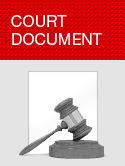IRAN/AZERBAIJAN: KILLING IN AZERBAIJAN OF WRITER TARGETED BY IRANIAN CLERICS' FATWA
The 2006 fatwa by a senior Iranian cleric calling for the killing of Rafiq Tagi, a writer and journalist in the Republic of Azerbaijan and a statement by his son applauding Rafiq Tagi’s recent killing in Baku by an unknown person highlight the urgent need for reform of the Iranian Penal Code, said Amnesty International today.
Grand Ayatollah Fazel Lankarani, who has since died, issued the fatwa calling for Rafiq Tagi to be killed after Rafiq Tagi published an article in a newspaper in November 2006 entitled ‘Europe and Us’. The article compared Islam and Christianity in terms strongly favouring the latter, and argued for Azerbaijan’s identity to be seen, in an ethical and philosophical sense, as closely linked to Europe.
The publication of the article was quickly followed by demonstrations in the Azerbaijani village of Nardaran, in which demonstrators reportedly made death threats against Rafiq Tagi and the newspaper’s editor Samir Sədəqətoglu.
The protests spread to Iran, which has a substantial ethnic Azerbaijani minority, and culminated in the issuing of the fatwa by Grand Ayatollah Fazel Lankarani, stating that the killing of both the article’s author and the editor was “necessary”. Two other Iranian clerics, Ayatollah Morteza Bani Fazl and Ayatollah Mohsen Mojtahed Shabestari, also reportedly called for Rafiq Tagi’s killing.
The Iranian authorities never condemned these fatwas, which appear to be an incitement to murder, nor have they clarified that anyone suspected of inciting, planning, carrying out or aiding attacks on Rafiq Tagi or Samir Sədəqətoglu should be brought to justice. A similar fatwa by Ayatollah Khomeini, the Founder of the Islamic Republic of Iran, was issued against British writer Salman Rushdie in 1989 and has never been rescinded . In 1998, the Iranian authorities stated that they would "neither support nor hinder assassination operations on Rushdie," as a precondition to restoring diplomatic relations with the UK.
Under Article 226 of the Iranian Penal Code, committing intentional murder will incur a sentence of “retribution” (qesas-e nafs) – in other words, execution – “provided the murdered person did not deserve to die [mahdour al-dam] in accordance with Islamic Law”. This defence has been used in Iran by individuals accused of murder who have claimed in court that their victim had deserved to die. The existence of fatwas calling for the killing of an individual could be used as the basis of such a defence.
The UN Human Rights Committee, which oversees the implementation of the International Covenant on Civil and Political Rights (ICCPR) to which Iran is a state party, recently expressed concern about this provision in Article 226 when examining Iran’s Third Periodic Report to the Committee. In its Concluding Observations, the Committee recommended removing “the “mahdoor-ol-dam” (deserving of death) definition, applied to victims, so as to ensure that perpetrators are prosecuted and brought to justice for their crimes”.
Amnesty International is urging the Iranian authorities to ensure that this provision is excluded from the revised Penal Code currently under discussion in the Majles, Iran’s parliament; to ensure that a concept of “deserving of death” cannot be used as a justification for murder; and that anyone suspected of inciting, planning, committing or aiding murder, whether the killing takes place in Iran or elsewhere, is brought to justice in a trial which fully meets international fair trial standards, without recourse to the death penalty.
Amnesty International welcomes the opening of a criminal investigation in Azerbaijan and calls on the Azerbaijani authorities to ensure it is thorough and effective, and that the perpetrator/s are prosecuted and brought to trial in a trial which meets international fair trial standards.
Amnesty International also calls on the Iranian authorities to provide all necessary cooperation to the Azerbaijani authorities during the investigation.
Background
Rafiq Tagi was stabbed by an unknown assailant on 19 November 2011 and died four days later in hospital, shortly after giving an interview in which he said he thought the attack had been orchestrated by someone angry with his articles, in particular one called “Iran and the Inevitability of Globalisation”, published on the website kulis.az on 11November which had been critical of the Iranian authorities. The Iranian Embassy in Baku denied any Iranian involvement in his killing.
On 28 November 2011, Grand Ayatollah Fazel Lankarani’s son, Ayatollah Mohammad Javad Lankarani posted a statement on his website congratulating Rafiq Tagi’s killer and commemorating his father’s fatwa which had called for Rafiq Tagi’s death. His comments appeared to imply that other such attacks might be carried out.
Five years earlier, in November 2006, Rafiq Tagi and Samir Sədəqətoglu were arrested in Azerbaijan and tried for incitement of national, racial or religious hatred. In May 2007, they were sentenced to three and four years in prison respectively. Amnesty International called for their immediate and unconditional release, and for them to be provided with appropriate security measures to protect them from threatened reprisals. Both were pardoned by the President of Azerbaijani in December 2007 and released.
See Amnesty International, Iran: Eight years of death threats: Salman Rushdie, Index: MDE 13/017/1997, 30 April 1997, HYPERLINK "http://www.amnesty.org/en/library/info/MDE13/017/1997/en" http://www.amnesty.org/en/library/info/MDE13/017/1997/en
See Concluding Observations of the Human Rights Committee: Islamic Republic of Iran , HYPERLINK "http://www2.ohchr.org/english/bodies/hrc/docs/CCPR.C.IRN.CO.3.doc" http://www2.ohchr.org/english/bodies/hrc/docs/CCPR.C.IRN.CO.3.doc
See Amnesty International, Azerbaijan: Immediate release for prisoners of conscience, Index: EUR 55/015/2007, 11 October 2007, HYPERLINK "http://www.amnesty.org/en/library/info/EUR55/015/2007/en" http://www.amnesty.org/en/library/info/EUR55/015/2007/en
